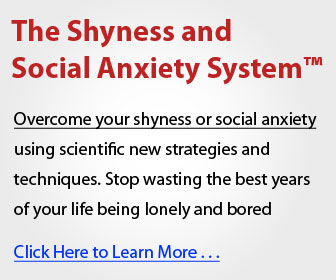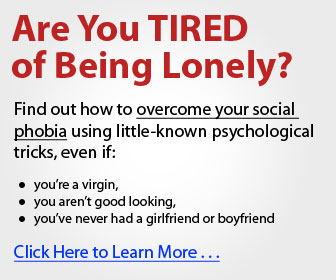Anxiety has become one of the most common mental health challenges of modern life. From constant notifications to work pressure, financial worries, family commitments, and the overwhelming pace of change, many people find themselves trapped in cycles of stress and overthinking. While there are countless methods to cope, one of the most powerful, sustainable, and scientifically validated approaches is mindfulness meditation for anxiety. This practice not only helps reduce stress but also strengthens emotional resilience, enhances mental clarity, and supports long-term well-being.
What Is Mindfulness Meditation?
Mindfulness meditation is a practice that involves intentionally focusing your attention on the present moment with openness, curiosity, and without judgment. Instead of trying to avoid thoughts or suppress emotions, mindfulness encourages you to observe them and let them pass naturally. Over time, this builds a calmer mind and a more grounded sense of awareness.
This technique can be practiced anywhere—at home, at work, outdoors, or even while performing daily activities such as eating or walking. Its accessibility and simplicity make mindfulness meditation for anxiety an essential skill for anyone looking to reduce stress and improve emotional balance.
How Anxiety Affects the Mind and Body
Anxiety is more than feeling worried. It is a biological response triggered by perceived threats or uncertainties. When anxiety becomes chronic, the body remains stuck in “fight-or-flight” mode, leading to symptoms such as:
- Constant worrying
- Racing thoughts
- Insomnia
- Muscle tension
- Rapid heartbeat
- Digestive issues
- Difficulty concentrating
Mindfulness meditation for anxiety helps interrupt this cycle by calming the nervous system, slowing intrusive thoughts, and teaching your mind to respond more intentionally instead of reacting impulsively.
Why Mindfulness Meditation Works for Anxiety
There is growing scientific evidence showing that mindfulness meditation significantly reduces anxiety and emotional stress. Here are some key reasons why it is so effective:
It reduces activity in the brain’s fear center
The amygdala, which controls the fear response, becomes less reactive as you practice mindfulness. This helps you stay calm even in stressful situations.
It increases emotional regulation
Mindfulness strengthens the prefrontal cortex—responsible for decision-making and emotional control—helping you respond more thoughtfully to challenges.
It enhances self-awareness
By becoming more aware of your thoughts and feelings, you gain the ability to observe anxiety instead of being consumed by it.
It promotes relaxation
Mindfulness triggers the body’s relaxation response, lowering heart rate, reducing muscle tension, and easing physical symptoms of anxiety.
It breaks the cycle of overthinking
Practicing mindfulness meditation for anxiety teaches your mind to stay in the present moment, reducing rumination and catastrophic thinking.
Simple Ways to Start Practicing Mindfulness Meditation for Anxiety
You don’t need experience or special equipment to begin. Here are beginner-friendly methods:
1. Breathing Meditation
Sit comfortably, close your eyes, and focus on your breath.
Notice each inhale and exhale without trying to change anything.
If your mind wanders, gently bring your attention back.
Even five minutes a day can bring noticeable relief.
2. Body Scan Meditation
Lie down or sit comfortably.
Slowly move your attention from your toes to your head, noticing sensations without judgment.
This method helps release physical tension caused by anxiety.
3. Mindful Walking
Walk slowly and pay attention to each step.
Feel the ground beneath you, observe sounds, and notice your surroundings.
This is ideal if sitting still is difficult.
4. Grounding Through the Five Senses
Notice:
- 5 things you see
- 4 things you can touch
- 3 things you hear
- 2 things you smell
- 1 thing you taste
This method quickly calms the nervous system during anxious moments.
5. Guided Mindfulness Sessions
If you prefer structure, you can use apps, videos, or audio recordings that lead you through mindfulness meditation for anxiety step by step.
Tips for Staying Consistent
The benefits of mindfulness compound over time, so consistency is key. Try these strategies:
- Set aside a specific time each day
- Keep your sessions short at first
- Create a calm space dedicated to practice
- Don’t judge yourself if your mind wanders
- Use reminders or alarms
- Pair mindfulness with daily routines such as morning coffee or bedtime
The goal is not perfection but progress.
Long-Term Benefits of Mindfulness for Anxiety Relief
Regular practice of mindfulness meditation for anxiety offers long-lasting improvements, including:
- Better emotional regulation
- Improved sleep quality
- Reduced stress hormones
- Stronger mental clarity
- Increased sense of peace
- More patience and resilience
- Enhanced overall happiness
Many people also find that mindfulness improves relationships, productivity, and overall quality of life.
Final Thoughts: A Path Toward a Calmer, More Balanced Life
Anxiety can feel overwhelming, but it does not have to control your life. Practicing mindfulness meditation for anxiety helps you slow down, reconnect with your inner peace, and respond to challenges with clarity instead of fear. Whether you spend just a few minutes a day or incorporate longer sessions into your routine, this practice offers powerful, lasting benefits for your mind and body.
If you commit to mindfulness regularly, you will gradually notice a shift—your thoughts become quieter, your emotions become easier to navigate, and your life begins to feel more grounded. This is the true power of mindfulness: it empowers you to transform anxiety into calmness, one mindful breath at a time.




